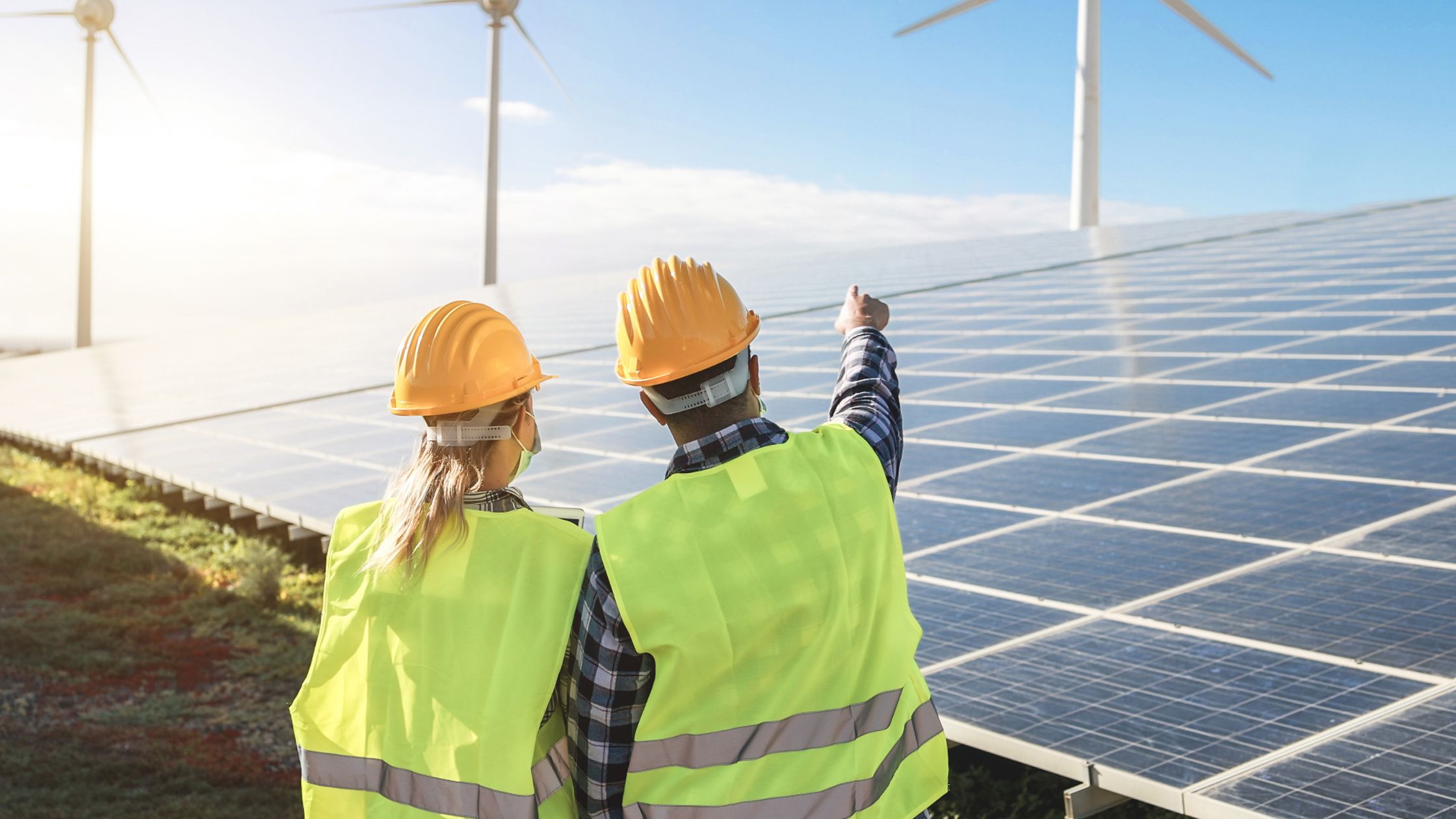The Role of Clean Energy and the Future of Oil and Gas in the UK
16 Oct, 202404:15The debate around energy security and future job markets is intensifying in the face of grow...

The debate around energy security and future job markets is intensifying in the face of growing energy demands and the urgency to address climate change. As many countries reconsider their energy strategies, renewable energy solutions such as wind, solar, and other green technologies offer unique opportunities for long-term energy security and economic growth.
The Role of Oil, Gas, and Renewables
The argument that new oil and gas projects are essential to energy security is very much valid since oil and gas have been at the core of the UK’s energy networks for generations. However, most oil and gas produced in the UK is exported, meaning the country’s domestic energy needs are only partially met by its own production. In fact, 77% of oil and 21% of gas produced in the UK are exported (ONS, 2022). As a result, fresh oil and gas may not be the full solution to the UK’s energy issues.
In addition, new oil and gas fields can take considerable time to become operational. By the time they do, the UK hopes to be well on the way towards net zero. In this context, renewable energy generation is a quicker and more environmentally sustainable way to supplement our energy supplies and enable the UK to be energy independent.
Renewable Energy and Lower Bills
One of the strongest examples of clean energy is its potential to reduce energy bills. Over the past few years, offshore wind, onshore wind, and solar power have consistently been cheaper than gas. Even after accounting for the costs of grid flexibility (needed to address renewable energy’s intermittent supply), renewables generally outperform gas in terms of cost-effectiveness.
Renewable energy prices are also less volatile than those of oil and gas, which are subject to international market fluctuations. By investing in an ambitious rollout of renewable energy, the UK can reduce reliance on costly gas, ultimately leading to lower household energy bills and greater price stability.
The Role of Energy Efficiency
In addition to the direct benefits of renewable energy, energy-efficient homes powered by low-carbon technologies can deliver even more savings. For example, homes equipped with electric heat pumps and proper insulation can save up to 30% annually on energy bills compared to homes reliant on traditional gas heating systems (The Times, 2024). These savings will only grow as the UK continues to increase its share of cheap, renewable electricity generation.
The faster the country moves towards energy-efficient housing, the quicker energy bills will fall, making clean energy the clear solution for long-term cost reduction.
Jobs of the Future: A Green Industrial Revolution
The concerns surrounding the unstable nature of working in the oil and gas sector are more than understandable. The industry has historically experienced fluctuations due to economic cycles impacting employment, particularly when oil prices are unstable. For example, the oil and gas sector has seen ups and downs in employment levels over the years, reflecting broader market conditions and shifts in demand.
By contrast, the renewable energy sector and other green industries can create stable and new jobs to offset these fluctuations. A well-planned green industrial strategy could create 1.6 million jobs over the next decade, particularly in industries like offshore wind, decommissioning, and infrastructure projects. The UK Government has also set very ambitious plans to exceed expectations and create 2 million green jobs by 2030 (GOV, 2021). These jobs require many of the same skills that oil and gas workers already possess, making the transition easier for those seeking more secure and sustainable employment.
Moreover, retraining programmes and support for workers transitioning from high-carbon jobs to green energy sectors will ensure a fair and just transition. Many oil and gas workers have already expressed their willingness to switch sectors, with 80% stating they would consider leaving the oil and gas industry if given the opportunity.
A Green Future for Energy Security and Economic Growth
The evidence is clear: clean energy, not new oil and gas, is the path to true energy security, lower bills, and future job growth in the UK. By accelerating the rollout of renewable energy sources like wind and solar, the UK can reduce its reliance on imported oil and gas, shield households from fluctuating energy prices, and create a thriving green economy that provides stable, high-quality jobs.
The question now is not whether we should invest in clean energy but how quickly we can scale up our efforts. Every delay in moving away from oil and gas only exacerbates the challenges we face.
The Future is Green
Investing in new oil and gas developments is a costly and inefficient way to address the energy trilemma in the UK. A better solution lies in a more ambitious rollout of renewable energy, which will enhance energy security, reduce energy costs, and create jobs for the future. With the right strategy, the UK can lead the way in the global transition to clean energy.
Looking to hire skilled professionals for your green energy projects? NES Fircroft specialises in green energy recruitment, connecting businesses with the talent they need to thrive in this rapidly growing sector. Visit NES Fircroft to learn how they can support your recruitment needs and help you build a workforce for the future.









